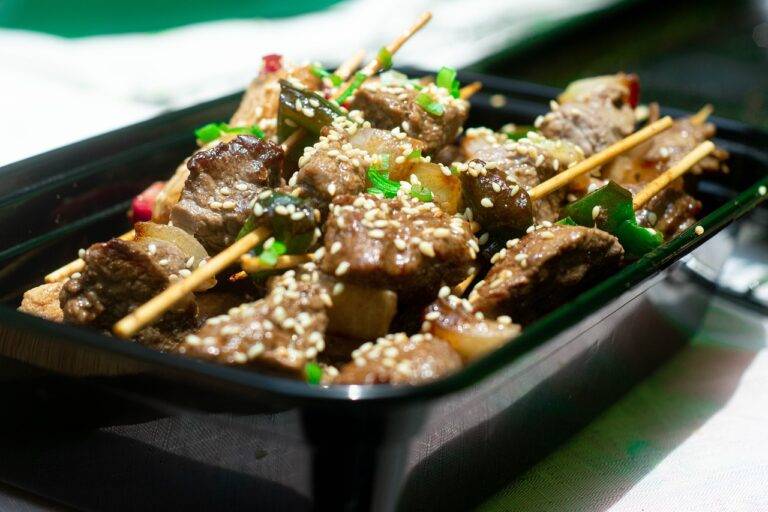Enhancing Food Quality and Safety Standards in Quick Service Restaurants: 11xplay reddy login registration, Laser book 247, Skylive casino
11xplay reddy login registration, laser book 247, skylive casino: Enhancing Food Quality and Safety Standards in Quick Service Restaurants
In the fast-paced world of quick service restaurants (QSRs), maintaining high food quality and safety standards is paramount. With consumers becoming increasingly conscious of what they eat, it’s more important than ever for QSRs to prioritize the quality and safety of the food they serve. Not only does this contribute to customer satisfaction, but it also ensures the long-term success and sustainability of the business.
In this article, we will explore the various ways in which QSRs can enhance their food quality and safety standards to meet the expectations of today’s consumers.
1. Implementing HACCP (Hazard Analysis and Critical Control Points) Systems
One of the most effective ways to ensure food safety in QSRs is by implementing a HACCP system. This system helps identify potential hazards in food production and establishes critical control points to prevent them. By following HACCP principles, QSRs can minimize the risk of foodborne illnesses and ensure that the food they serve is safe for consumption.
2. Training Staff on Food Safety Practices
Proper training of staff is essential to maintaining food quality and safety standards in QSRs. Employees should be educated on best practices for food handling, storage, and preparation to minimize the risk of contamination. Regular training sessions and updates on food safety protocols can help ensure that staff consistently adhere to these standards.
3. Regular Inspections and Audits
Conducting regular inspections and audits of food preparation areas, storage facilities, and equipment is essential to maintaining food safety standards. By identifying potential issues early on, QSRs can address them promptly and prevent food safety incidents. Investing in third-party audits can also provide an objective assessment of the restaurant’s performance in terms of food quality and safety.
4. Sourcing High-Quality Ingredients
The quality of ingredients used in QSRs directly impacts the overall food quality. To ensure high standards, QSRs should source ingredients from reputable suppliers that meet food safety regulations. Working closely with suppliers to establish quality standards and specifications can help maintain consistency in the products offered to customers.
5. Implementing Food Traceability Systems
Traceability systems enable QSRs to track the journey of food products from supplier to consumer. In the event of a food safety issue, traceability systems can quickly identify the source of contamination and prevent further distribution of affected products. Implementing such systems demonstrates a commitment to transparency and accountability in food production.
6. Emphasizing Cleanliness and Hygiene
Maintaining a clean and hygienic environment is essential to ensuring food safety in QSRs. Regular cleaning and sanitization of food preparation areas, equipment, and utensils help prevent cross-contamination and the spread of bacteria. Additionally, enforcing strict hygiene practices among staff, such as handwashing and proper attire, is crucial in upholding food safety standards.
FAQs:
Q: What are some common food safety hazards in QSRs?
A: Common food safety hazards in QSRs include cross-contamination, improper temperature control, poor hygiene practices, and inadequate food storage.
Q: How can QSRs ensure food quality consistency across multiple locations?
A: QSRs can ensure food quality consistency by implementing standardized recipes, regular training of staff, and conducting frequent quality checks and inspections.
Q: What role do customers play in ensuring food safety in QSRs?
A: Customers can contribute to food safety in QSRs by providing feedback on their dining experiences, reporting any concerns about food quality or safety, and being informed about food safety practices.
Q: Why is food safety important in QSRs?
A: Food safety is crucial in QSRs to protect the health of customers, uphold the reputation of the business, and comply with regulatory requirements. Additionally, maintaining high food safety standards can enhance customer trust and loyalty.
In conclusion, enhancing food quality and safety standards in quick service restaurants is essential for ensuring customer satisfaction, compliance with regulations, and the long-term success of the business. By implementing robust food safety protocols, training staff on best practices, sourcing high-quality ingredients, and emphasizing cleanliness and hygiene, QSRs can demonstrate a commitment to excellence in food production. Ultimately, prioritizing food quality and safety not only benefits customers but also contributes to the overall success and sustainability of QSRs.







